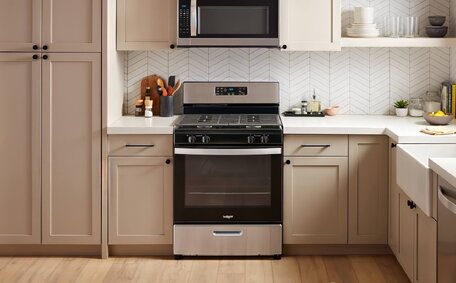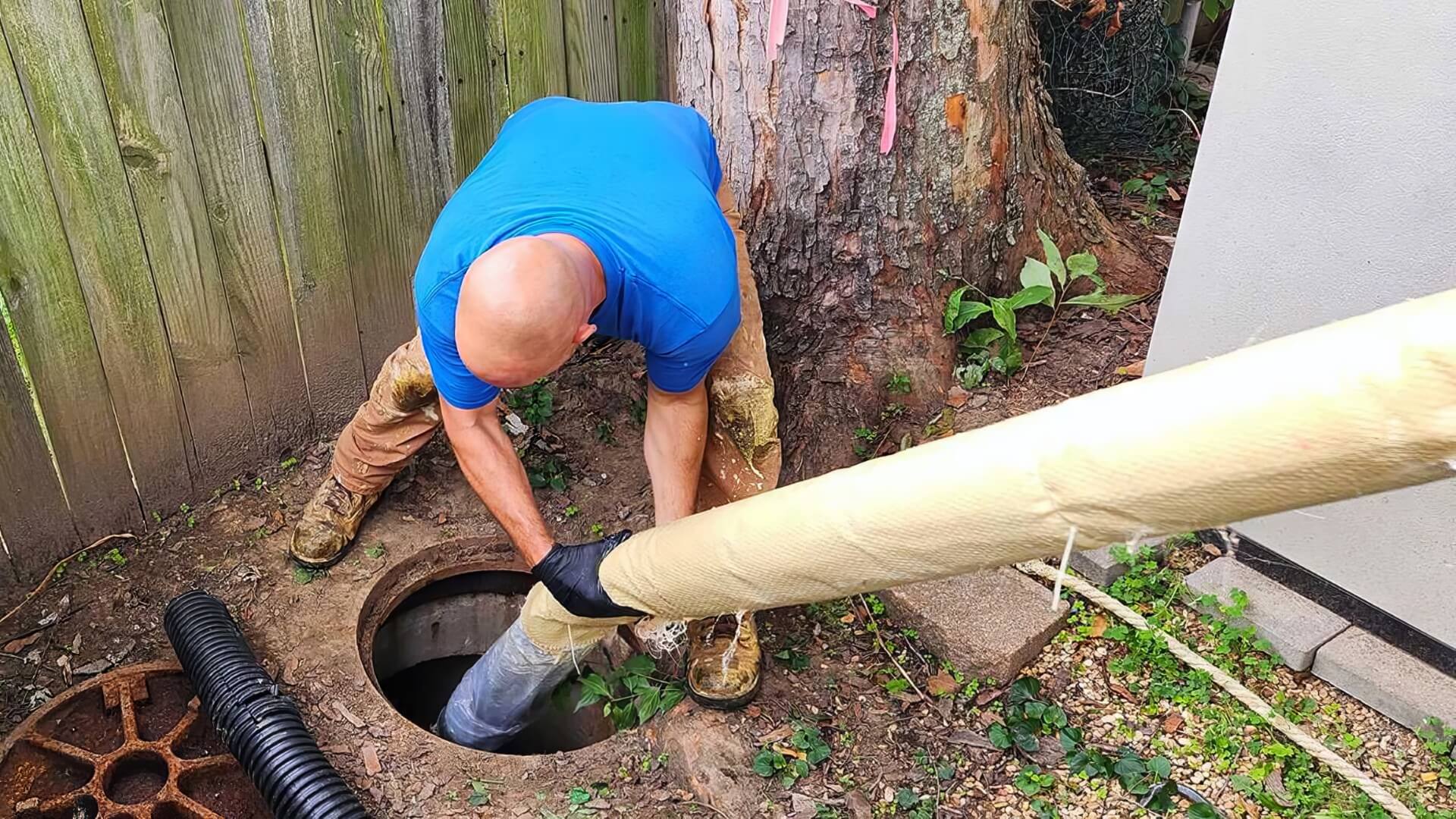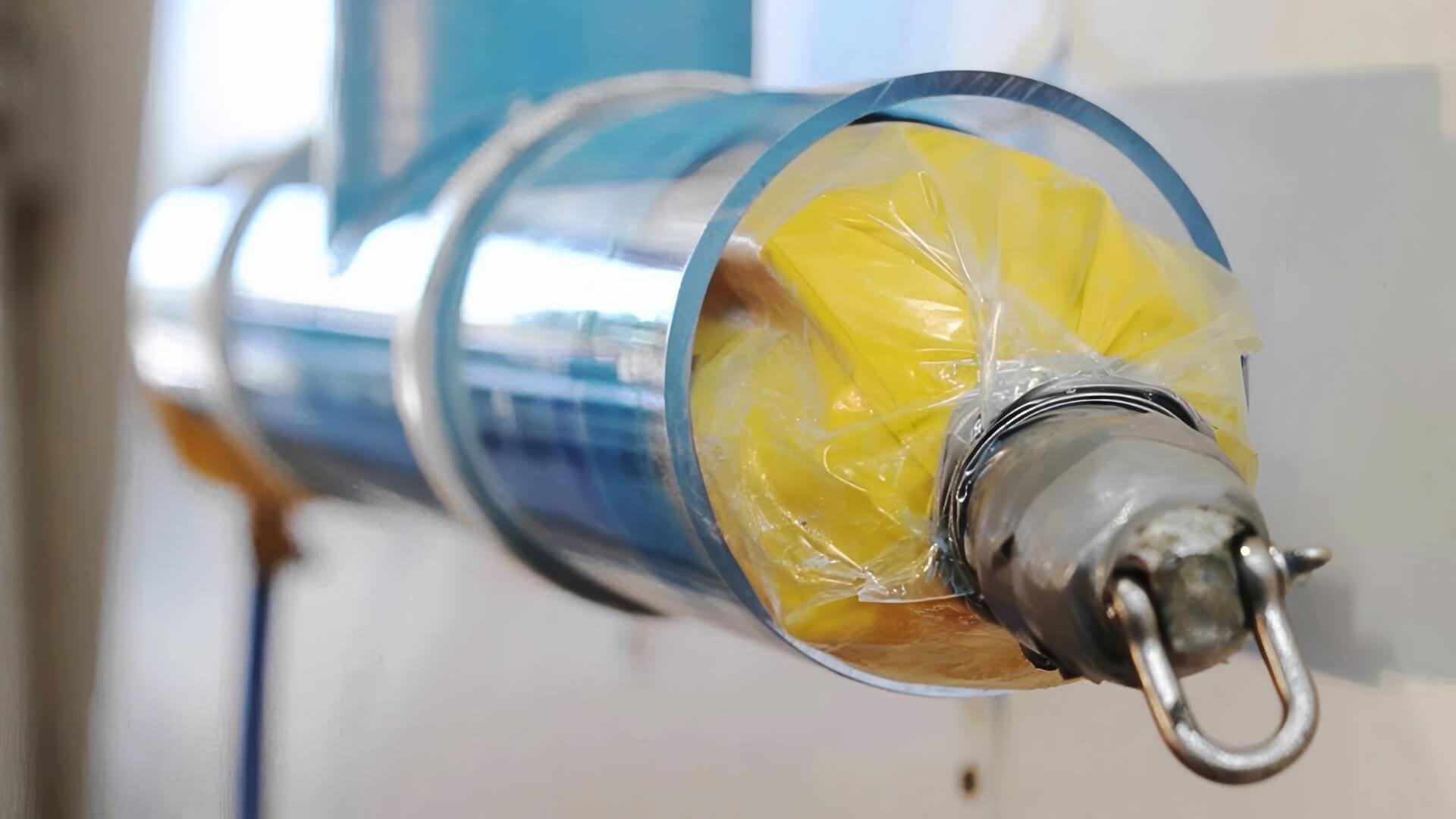Why Sinks Get Blocked and Signs of a Blockage
Blockages in sinks typically arise from the build-up of common culprits like food remnants, grease, hair, and soap scum. You might notice a blocked sink by slow drainage, gurgling sounds, unpleasant smells, or standing water.
Food items such as coffee grounds and eggshells can adhere to pipes, ultimately leading to blockages and clogged drains.
Pouring fats, oils, and grease down the drain can result in significant blockages and a blocked sink. Substances like hair and soap scum stick to pipes, which can leave your sink blocked and negatively impact your drainage system. This debris gradually narrows the pipes, impeding water flow.
Cherrybrook Plumbing, located in Cherrybrook Sydney, knows how to fix blocked sink issues, providing solutions to fix blocked drains and clear your sink blockages. If you detect any of the above signs and are unsure how unblock your sink, contact us to find out how to restore free-flowing water.
Preventing Future Sink Blockages
Several simple daily practices can prevent sink blockages:
- Use sink strainers to catch food particles and debris, ensuring to regularly empty them into the bin.
- Avoid pouring fats, cooking oil, and grease into drain. Collect cooled grease in a container, or use washing powder to break it down, instead of pouring it down your drain.
- Limit pouring harsh chemicals, like caustic soda, down sinks.
- Regular removal of hair from sinks helps keep your drains clear of obstructions.
For maintaining the vitality of your bathroom sink and its drains:
- Flush all drains with hot water weekly for a minute to dissolve grease and prevent buildup.
- Perform a monthly baking soda vinegar treatment by using half a cup of each ingredient, an action that takes just minutes. Pour baking soda down the drain first to unclog sink effectively, followed by vinegar. Let bubble for 10 minutes and then pour hot kettle water to rinse.
- You can adopt this simple habit: use drain cleaner enzymes regularly to break down organic matter in your garbage disposal.
Your local Cherrybrook Plumbing specialises in assisting homeowners in establishing good preventative habits for areas like the bathroom. Contact us anytime for professional advice customised for your needs on keeping drains and pipes clear.
Trying a Plunger to Dislodge Blockages
Using a plunger is a common approach to dislodge obstructions in kitchen and bathroom sinks. When employing a plunger, it’s time to create an airtight seal on the drain for maximal effectiveness.
Begin by filling the sink to the halfway point, then proceed to plunge after the water level stabilises for maximum effect. Repeat if needed until the blockage clears, or if your sink still seems clogged.
Make sure to position the plunger securely over the drain to establish a firm seal. Plunge the plunger up and down rhythmically 10-15 times to apply pressure down the drain.
When working on delicate piping, it’s wise to wear rubber gloves to minimise direct contact and protect your hands. Avoid excessive force as forceful plunging could potentially damage your pipes.
Should plunging exacerbate the clog, don’t worry, simply cease promptly and consider other options. The blockage may require you to use chemical drain cleaners or to unclog your pipes further down the line. In that case, stronger solutions would be required like a chemical drain cleaner, or calling a professional Cherrybrook plumber to safely remove the debris.
Using Boiling Water to Clear Grease Clogs
Boiling water poured down the drain can effectively dissolve grease and clear blockages. Bring a kettle to a boil before pouring it cautiously down the sink.
The boiling water’s heat helps liquefy grease, allowing it to move smoothly through the sink system. Take care to pour slowly and avoid splashing.
Note that very hot water on a standing water sink may damage one without the durability of materials like stainless steel and instead made of delicate materials like porcelain, enamel, or acrylic. If your sink is scratched or cracked, you’re most likely better off trying an alternative unclogging method. Boiling water is especially effective when used in conjunction with the previously mentioned methods and is best applied to drains free of standing water.
For preventative maintenance, run some cold water through very hot tap water for a full minute weekly.
This method will keep your pipes clear of grease by pouring down some hot water over time. You can also use boiling water before trying chemical drain cleaners. The introduction of boiling water into the scenario may dissolve the clog, rendering chemicals unnecessary.
For professional help with stubborn clogs or installing grease guards, contact Cherrybrook Plumbing. Our team has extensive experience with plumbing solutions to keep drains free-flowing.
Baking Soda and Vinegar to Break Down Blockages
A mixture of household items like baking soda and vinegar is effective and eco-friendly for addressing sink blockages.
- Disperse 1 cup baking soda into the obstructed passage.
- Proceed with one cup of white vinegar; its reaction with baking soda will cause a foaming action.
- To enhance the cleaning action, cover the drain with a stopper or cloth while the baking soda and vinegar react. This contains the chemical reaction and allows pressure to back up in the pipe.
- After 10-15 minutes, flush the drain with very hot water to rinse away any debris and residue.
You can repeat this baking soda and vinegar treatment weekly as preventative maintenance. The combination of soda crystals and other common ingredients helps dissolve soap scum, hair, grease, and food buildup as it reacts in the drain. This method is also less harsh than chemical solutions, making it a gentler option for clearing clogs.
For severe blockages or those caused by tree roots, it’s advisable to call the experts at Cherrybrook Plumbing. We have advanced equipment like drain snakes to fully clear debris and get water flowing freely again.
Salt, Soda, and Hot Water Mixtures
Mixing hot water with bicarbonate of soda (baking soda) and salt becomes an effective way to unblock your kitchen sink from stubborn blockages. Here is a simple recipe:
- Introduce a mixture of 1 cup of baking soda and 1 cup of salt into the clogged drain
- Proceed by carefully pouring boiling water from a kettle down the drain
- The mixture will react by fizzing and bubbling.
- Cover with a sink stopper and let the mixture work for 2-3 hours, or preferably overnight.
This homemade remedy can unclog kitchen sinks effectively by dissolving common buildups like grease, hair, and soap residue. The salt acts as an abrasive scrubber while the baking soda and hot water work to break up debris. Allowing it to sit for hours gives the solution time to penetrate and dislodge the clog.
Regular weekly use of this treatment can help prevent future blockages. It’s also gentler on pipes than chemical drain cleaners. For extensive drain cleaning services, contact the specialists at Cherrybrook Plumbing.
Unwiring a Coat Hanger to Remove Debris
A wire hanger can serve as an efficient tool for extricating detritus clogging a sink’s waterway. Here is a step-by-step process:
- Unwind the coat hanger, straightening it into a long wire with a hooked end.
- Place a bucket beneath the sink to catch any escaping water and dislodged debris.
- Remove the ubend using the sink trap/bend pipe underneath the sink. Set it aside in the bucket.
- Insert the straightened coat hanger into your drain pipe to reach the clog. Gently move it around to dislodge debris.
- Slowly pull out the coat hanger. Hooked debris should come up with it.
- Repeat as needed until the drain seems clear, and with a bit luck, one round of flushing with hot water should do the trick.
- Replace the sink trap.
Exercise caution not to scratch the sink and gently handle the wire to avoid damaging the pipes. If snaking with a coat hanger doesn’t unclog the blockage, a chemical drain cleaner or professional plumber may be needed.
For professional sink drain cleaning services, contact the specialists at Cherrybrook Plumbing on 1300 349 338. Our licenced plumbers have high-powered drain augers to thoroughly clear blockages.
Taking Apart and Cleaning the P-Trap
The p-trap is the u-shaped pipe directly under the sink that catches debris flowing down the drain. With some simple tools, you can do the task of taking apart and cleaning the p-trap, so it doesn’t get to the point where you can’t manage it yourself.
- Place a bucket under the p-trap to catch any water spillage or debris.
- Loosen the slip nuts on each end of the p-trap using adjustable pliers or a wrench.
- Disconnect the p-trap and set it aside in the bucket.
- Check inside both ends of the pipe and clear out any built-up gunk or debris so you can get your sink functioning again.
- Scrub all parts of the disassembled p-trap thoroughly with a sink brush.
- Rinse everything thoroughly under hot running water.
- Reassemble the p-trap and retighten the slip nuts.
When putting the p-trap back, make sure the curve is oriented upright so water can flow properly. Wear rubber gloves for protection when handling pipe parts. Taking apart and cleaning the p-trap regularly prevents major sink clogs from building up over time.
For professional drain cleaning or repairs, contact the specialists at Cherrybrook Plumbing on 1300 349 338. Our licenced technicians service all suburbs across Sydney.
Using a Drain Snake for Stubborn Clogs
Use a drain snake as a non-harsh solution to dislodge persistent blockages deep within the drain. Gently insert the hooked end of the metal snake into the drain, easing the way clear with each careful rotation of the crank.
Start by disconnecting the p-trap underneath the sink to access the drain. This allows the snake to manoeuvre through pipe curves and break up debris. Retrieve removed gunk by slowly pulling back the drain snake. You may need to repeat the process several times to thoroughly clear the clog. Repeat as necessary to clear the blockage effectively.
Calling a Professional Plumber
If, after attempting these techniques, the blockage persists, it’s likely deeply lodged within the pipes, suggesting more advanced intervention is needed. Persisting with DIY solutions might exacerbate the clog or cause damage to your plumbing.
In that case, it’s best to call in a professional plumber like Cherrybrook Plumbing. Our licenced technicians have the high-powered equipment, expertise and experience to diagnose and resolve any stubborn drain issues.
Benefits of professional drain cleaning services include:
- Advanced tools like a plumber’s snake to clear up blockages lodged deep inside pipes
- Video pipe inspection to accurately diagnose problems
- Access to commercial-grade solutions for removing thick buildup or tree root growth
- Ensuring any underlying issues get fully repaired so problems don’t reoccur
- Preventing pipe damage from improper DIY methods
For prompt and reliable service, contact the professionals at Cherrybrook Plumbing today. Call us at 1300 349 338 or email jobs@cherrybrookplumbingservices.com.au. Our skilled staff are standing by to get your water flowing freely again.






